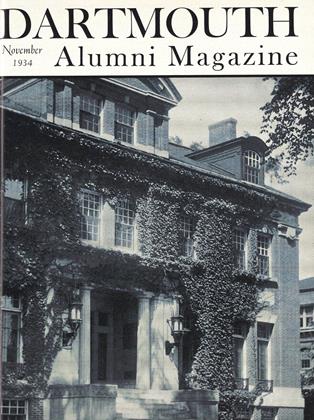By John M. Mecklin. Harcourt Brace.
The "story" told by Professor Mecklin is the struggle of Quakers, Baptists, and Methodists against the established churches of Massachusetts and Connecticut. Also is detailed the manner in which respectable Presbyterians and rabble Baptists, with the aid of Madison, Jefferson and Patrick Henry, won religious freedom first in Virginia and then in the federal Constitution.
Professor Mecklin's thesis is that dissent is a relative term conditioned by the economic, sociological and geographical environment. American dissent, originating in the teachings of Jesus, and shaped by John Calvin nevertheless has been a native product. Dissent is basically different from sectarianism, for the former is intellectual, liberal, and may become universal; while the latter is emotionally pious, intolerant, and essentially parochial no matter how large the sect becomes. As in America, the two may merge under pressure but always with a loss of the essential characteristics of dissent. Since a dissenting sect generally is composed of the under-privileged it is exposed to revivalism and primitivism; furthermore it adopts an ascetic ethics, which on the one hand names as sins those things indulged by the privileged, and on the other, turns the Bible into a fetish. Generations of frontier life in America fostered sects; with the result that organized religion, while legally free, became a spiritual mockery, with intolerance its principal attribute. Because dissent was vanquished, the sects easily allied with "100 per cent Americanism" and Big Business.
If a lay reader thinks this book shakes too much dust from old ashes let him substitute for the persecution of Baptists in Boston that of contemporary Communists in California. Because the great Protestant churches stultify their own history in their attitude toward modern dissenters the author says "they are religious anachronisms."
Professor Mecklin's prose at times is sonorous, at others epigrammatic; at all times his subcutaneous indignation at intolerance threatens to burst but never does his scholarly restraint. His chapter headings are titillatingly impious. This is a book that is both interesting arid provocative of thought.
The Geographical Review for October, 1934, includes an illustrated article by Professors Charles J. Lyon and James W. Goldthwait entitled An attempt to crossdate trees in drowned forests. The field work for this joint botanical and geological study was supported by grants from the American Geographical Society and the Carnegie Institution of Washington.
 View Full Issue
View Full Issue
More From This Issue
-
 Article
ArticleGRADUS AD PAMPASSUM
November 1934 By The Editors -
 Article
ArticleHANOVER BROWSING
November 1934 By Herbert F. West '22 -
 Class Notes
Class NotesClass of 1930
November 1934 By Albert I. Dickerson -
 Class Notes
Class NotesClass of 1934
November 1934 By Martin J. Dwyer Jr. -
 Class Notes
Class NotesClass of 1929
November 1934 By F. William Andres -
 Class Notes
Class NotesClass of 1914
November 1934 By Edward Leech
Malcolm Keir
Books
-
 Books
BooksFACULTY PUBLICATIONS
November, 1922 -
 Books
BooksTHIDWICK THE BIG HEARTED MOOSE,
November 1948 -
 Books
BooksAlumni Articles
January 1956 -
 Books
BooksTHE BEASTS & THE ELDERS.
January 1974 By ALEXANDER G. MEDLICOTT JR. '50 -
 Books
BooksDRUGS AND THE PUBLIC.
MAY 1973 By MURRAY SYLVESTER -
 Books
BooksTHE ISLANDERS.
December 1961 By RICHARD EBERHART '26




